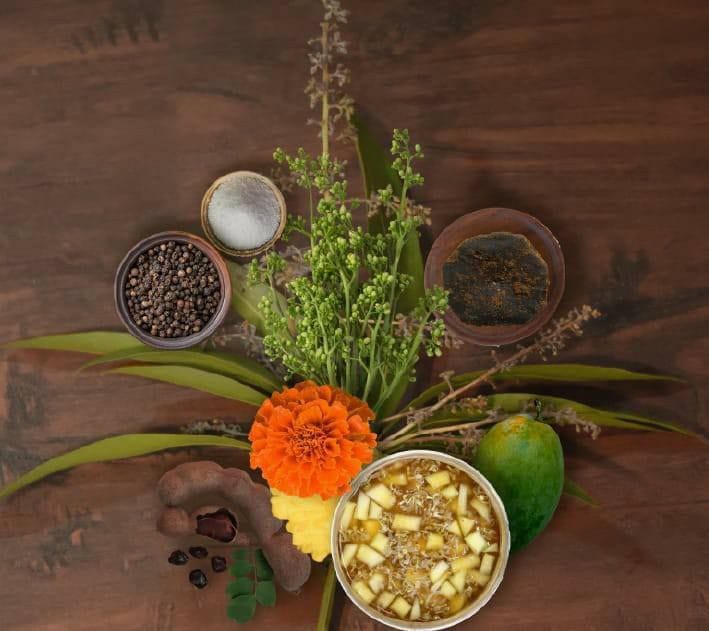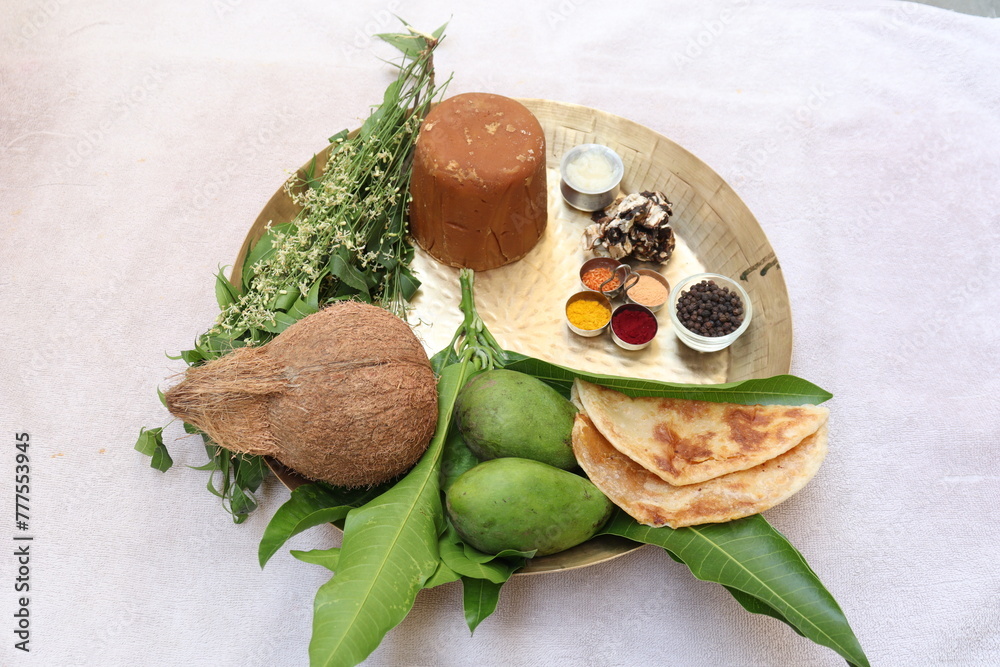Have you ever noticed how most of our Traditional Indian New Year celebrations, such as Gudi Padwa, Ugadi, Tamil Puthandu, Vishu, Noboborsho, and so on, happen right around the start of the spring season?
It’s quite beautiful when you think about it. Spring is all about renewal, growth, and fresh starts. Isn’t that exactly what a new year should represent?
The Ayurveda way of life aligns with nature. Spring is called ‘Vasatha Ritu’, and the transition period when one season transitions into another is known as ‘Ritu Sandhi’.
Now, why is ‘Ritu Sandhi’ important?
According to the Ayurveda way of living, our bodies need to adapt to the change in regimen each season to remain healthy. During ‘Ritu Sandhi, it’s essential to change our routine and diet to adapt to the upcoming season. If we don’t, we’re more likely to fall sick because the body struggles to adjust. And here’s the interesting part: most of our Indian New Year festivals fall during winter to spring, when nature is ready to bloom, crops are harvested, and everything feels fresh again.

Take Ugadi or Tamil New Year, for example. We prepare ‘Ugadi pachadi’ or ‘manga (mango) pachadi’, dishes that include all six tastes—sweet, sour, salty, bitter, pungent, and astringent.
Ever wondered why?
Yes, there’s the emotional aspect too—it reminds us that life is a mix of emotions and experiences. But there’s also a solid Ayurvedic reason. These six tastes help balance our doshas: Vata, Pitta, and Kapha.
Spring is the season when Kapha dosha, which builds up during winter, starts to melt and liquify. This can reduce our digestive fire and make us feel sluggish. To balance that out, Ayurveda recommends simple practices like applying oil infused with camphor or spices like pepper and jeera. And guess what? That’s exactly what many of us do during our New Year ritual head bath.
Even the mango in the pachadi? It’s there for a reason. Mango, being slightly heating in nature, increases Pitta dosha just enough to cut through the heaviness of the Kapha dosha and get our digestion back on track.
Ayurveda also suggests avoiding cold, oily, heavy, or overly sweet foods during this time, as they can aggravate Kapha dosha and affect your gut health.
To keep our health in check, we must align with nature. We must eat what’s in season, pay attention to how food impacts our bodies, and be more mindful of the rhythms of the world around us. Our festivals are not just cultural traditions; they’re a way of healthy living.



